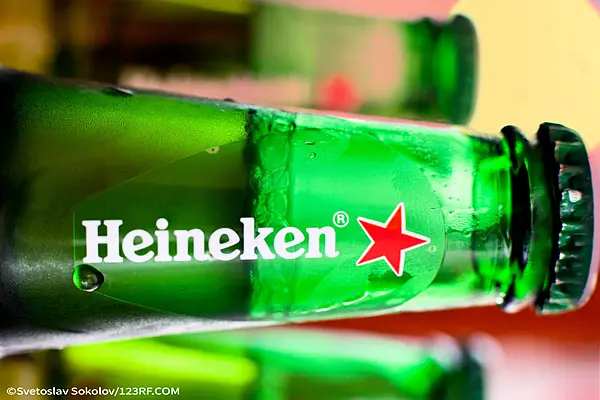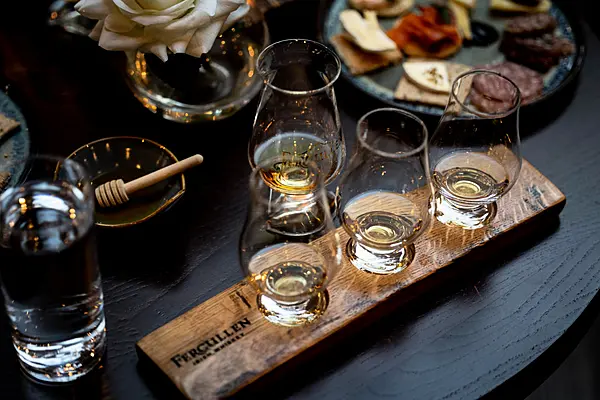In brewing’s contemporary landscape of attention-seeking India pale ales, it seems out of the four primary ingredients that constitute “beer”—malt, water, yeast, and hops—it's the hops, hops, and more hops that are getting the most attention.
Like gin, which can be flavoured by any number of different things but which must utilise juniper to be labeled as such, the inclusion of hops is a legal prerequisite to market beer in some countries, including the U.S.
But this wasn't always so. In fact, this hop requirement is vexing from a broader historical perspective, as beer dates back to the early Neolithic age, while hop usage in brewing is a significantly newer phenomenon, at roughly 1,000 years old.
Prior to this standardisation of recipes to require hops, a miscellany of local bittering flowers, herbs, and spices—known as a gruit—were used to flavour and preserve beer, without which, the fermented wort would remain unseasoned, unbalanced, and insipid (again, much like gin). Common botanicals included rosemary, myrtle, yarrow, and wormwood, as well as lavender, nettle, lemon balm, sage, and fennel seed. Like hops, the melange of wild and medicinal herbs provided flavoyr as well as antiseptic properties to keep unwanted microorganisms at bay.
These traditional hopless ales, also known as gruits, meld well with today’s foodie priorities—think local and foraged, with botanicals that change with the seasons. Below, find seven unique examples from modern craft brewers that are equally as good as a complex, cold-weather brew as they are refreshing in hotter weather. They run the flavour gamut in showcasing proprietary blends of hop substitutes, while including just enough of those ubiquitous green cones to appease government entities.
De Garde Fleur Desay (6.3% ABV)
While Oregon’s De Garde is most well-regarded for its juice-like sour fruit beers, some of its most exciting offerings are more subtle farmhouse releases. For its gruit Fleur Desay, a flowery character is supported by a tart underpinning and woody background, courtesy of maturation in Chardonnay oak barrels. This oddity’s for the wine lovers out there.
Dupont Cervesia (8% ABV)
Belgium’s revered Brasserie Dupont produces what is generally considered the archetypal saison. Its traditional Cervesia has the same flawless yeasty, farmhouse character as the rest of its portfolio, while surprising on the palate with many herbs and spices. Drink it as a terrific apéritif, yielding notes of black pepper, clove, and mint.
Freigeist + Kissmeyer Solo Gruit Vibrations (Pale 5.6% ABV; Dark 6.2% ABV)
Solo Gruit Vibrations is a set of two separate recipes, a light and dark, brewed in collaboration between Germany’s experimental Freigeist and Danish cult favorite Kissmeyer. The pale-colored riff contains seabuckthorn, bitter oranges, and rosehips and tastes citric and herbal. The dark-hued version utilizes lavender, rosehips, spruce twigs, and elderberries and is more tart and rather toasty.
Scratch Spring Tonic (4.5% ABV)
Bucolic Illinois farmhouse operation Scratch uses mostly home-grown, locally grown, and foraged ingredients from within five miles of the Shawnee National Forest in the concocting its rustic ales. For this spring seasonal tonic, the brewmasters combine dandelion, carrot tops, and clover with ginger from a neighboring farm. The final result is a harmonized quencher that tastes like a childhood garden. Keep a bottle handy on a hot day.
Professor Fritz Briem 13th Century Grut Bier (4.6% ABV)
This historical example from Bavaria predates the Reinheitsgebot of 1516 (Germany’s Purity Law of brewing) that dictated hops be used. Instead find bay leaves, ginger, caraway, anise, rosemary, and gentian—and yes, OK, a small amount of foraged “pollinated wild hops”—in a beer with fantastic historical fidelity and a taste to match, reminiscent of gin.
Propolis Grewit (7.5% ABV)
Washington state’s clever husband-and-wife duo behind Propolis makes use of Mother Nature’s bounty in just about every one of their country brews, such as birch or spruce in some saisons. For their Grewit [sic], a myriad collection of flowers and herbs is added atop a base beer on the darker side, which is then transferred to Malbec oak barrels for maturation. The result has an inviting, roasty nose of tobacco, with a dry and tart, herbaceous flavor.
Urban Farm Fermentory Harvest de Gruit (4.7% ABV)
While low-alcohol Kombucha-fermentation is this Maine brewery’s bread and butter, the team also makes cider, mead, and eclectic beer. UFF’s draft-only Harvest de Gruit is made with a rotating selection of mostly foraged natural flavors (basil, dandelion, juniper, et al.). The recipe may change, but the result is always the same: a refreshing outdoorsy crusher.
News by Bloomberg, edited by Hospitality Ireland









